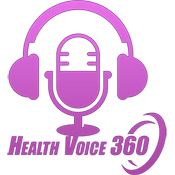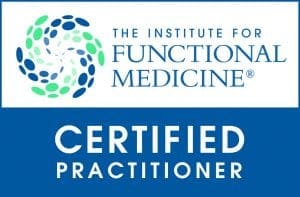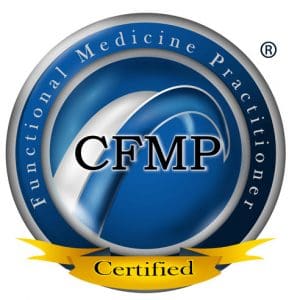Our body’s capacity to endure in a sport and the inflammatory processes that this exercise exerts over it depends on the synthesis and regulation of pro-inflammatory cytokines. The mixture of genetics and slowly building up training stamina are vital determinants that serve as the foundation for an athlete’s performance. Therefore, detecting specific gene variations of encoding proteins for pro-inflammatory cytokines is a cornerstone for functional medicine assessment in athletes.

Our body’s capacity to endure in a sport and the inflammatory processes that this exercise exerts over it depends on the synthesis and regulation of pro-inflammatory cytokines. The mixture of genetics and slowly building up training stamina are vital determinants that serve as the foundation for an athlete’s performance. Therefore, detecting specific gene variations of encoding proteins for pro-inflammatory cytokines is a cornerstone for functional medicine assessment in athletes.

Table of Contents
Inflammatory response to injury
During ligament and tendon injuries, pro-inflammatory mediators such as cytokines and interleukins become upregulated. Exercise is a systematic movement, and as such, it may exert repetitive mechanical loading in connective tissue cells resulting in cytokine upregulation. Therefore, an exacerbated inflammatory response may result in an increased recovery time after an injury or a training session. In a highly competitive world, these inflammatory responses can play a crucial role in determining an athlete’s performance or endurance.Â
Nowadays, SNP detection technology, screening, and research on specific sports or joint injuries provide a great insight into the maintenance of stamina and performance. Specific genetic variants associate with faster connective tissue recovery, serving as an excellent diagnostic tool to build a proper recovery or nutritional treatment.
Inflammation SNPs
The inflammatory response due to an injury initiates with interleukin-1B (IL-1B) upregulation, and the IL1B human gene encodes this cytokine. The macrophages present in the injured tissues produce IL-1B, which activates other pro-inflammatory cytokines like interleukin-6 (IL-6). This synthesis and cascade reaction is present after tendon and ligament injuries by fibroblasts.Â
In sports, IL-6, encoded by the IL-6 gene, expression increases in tendon loading, such as stretching of tendon fibroblasts and pathological conditions. Furthermore, an IL-6 increase results in elevated inflammation, apoptosis, and bone reabsorption. However, IL-6’s depends on its binding receptor, interleukin 6 receptor (IL-6R), to exert its pro-inflammatory effects.Â
Hypothesis supports the idea that polymorphisms of these specific encoding genes reflect an elevated tendency to ligament ruptures.
Clinical applications: Injury of the Anterior Cruciate Ligament
As genetic research evolves, new associations between gene variants and musculoskeletal soft tissue conditions become more evident. In this athletic population, the detection of specific gene variants can affect the mechanical function and structure of their connective tissue and muscle, reflecting poor performance or predisposition to injury.
Inflammation that rises in the injury’s presence is needed to restore and remove offending factors, ultimately leading to recovery. However, this balanced upkeep between the degradation and synthesis is essential to withstand the mechanical loads induced by exercise. Therefore, polymorphism detection of inflammatory gene variants, such as IL-IB, IL-6, and IL-6R, can be helpful in injury prevention and athletic training and recovery.
A Polish study explored four polymorphisms (IL1B rs16944 and rs1143627, IL6 rs1800795 and IL6R rs2228145) within three candidate genes: IL-1β, IL-6, IL-6R for association with ACL injury risk. This study found a significant association between IL6 rs1800795 and the tendency to develop ACL injury or rupture. These authors compared their findings to previous reports and determined that the CC genotype in this encoding gene is potentially protective against the ACL condition.
Also, they reported an association between the IL-6 gene CC genotype and reduced risk of osteoporosis. On the other hand, homozygous for the C allele postmenopausal women have low serum levels of type 1 collagen, an important marker of bone reabsorption. Elevated serum levels of C-reactive protein are a consistent finding in those individuals with G/C variants in this same gene.Â
How to measure inflammatory genes:
DNA analysis has become easier and accessible to those patients looking for an in-depth genetic assessment. Companies like dnalife provide a wide array of tests to prevent musculoskeletal injuries.
Inflammatory processes initiate a healing response. However, when this response is exacerbated, soft tissue ruptures or injuries can become difficult to treat or recover. SNP detection technology shines a light on this topic and provides a proper treatment to maintain and support athletic performance. Nevertheless, as these genes encode inflammatory markers, they may serve as preventive markers for those patients with a family history of soft tissue disease. – Ana Paola RodrÃguez Arciniega, MS
References:Â
LuliÅ„ska-Kuklik, Ewelina, et al. “Are IL1B, IL6 and IL6R Gene Variants Associated with Anterior Cruciate Ligament Rupture Susceptibility?.” Journal of sports science & medicine vol. 18,1 137-145. 11 Feb. 2019
Additional Online Links & Resources (Available 24/7)
Â
Online Appointments or Consultations: bit.ly/Book-Online-Appointment
Â
Online Physical Injury / Accident Intake Form:Â bit.ly/Fill-Out-Your-Online-HistoryÂ
Â
Online Functional Medicine Assessment:Â bit.ly/functionmed
Â
Disclaimer
Â
The information herein is not intended to replace a one-on-one relationship with a qualified healthcare professional, licensed physician, and not medical advice. We encourage you to make your own health care decisions based on your research and partnership with a qualified health care professional. Our information scope is limited to chiropractic, musculoskeletal, physical medicines, wellness, sensitive health issues, functional medicine articles, topics, and discussions. We provide and present clinical collaboration with specialists from a wide array of disciplines. Each specialist is governed by their professional scope of practice and their jurisdiction of licensure. We use functional health & wellness protocols to treat and support care for the musculoskeletal system’s injuries or disorders. Our videos, posts, topics, subjects, and insights cover clinical matters, issues, and issues that relate to and support, directly or indirectly, our clinical scope of practice.* Our office has made a reasonable attempt to provide supportive citations and has identified the relevant research study or studies supporting our posts. We provide copies of supporting research studies available to regulatory boards and the public upon request. We understand that we cover matters that require an additional explanation of how it may assist in a particular care plan or treatment protocol; therefore, to further discuss the subject matter above, please feel free to ask Dr. Alex Jimenez or contact us 915-850-0900. Read More.
Dr. Alex Jimenez DC, MSACP, CCST, IFMCP*, CIFM*, CTG*
email: coach@elpasofunctionalmedicine.com
phone: 915-850-0900
Licensed in Texas & New Mexico
General Disclaimer
Professional Scope of Practice *
The information herein on "Gene Variations Influencing Inflammation and Injuries in Sport." is not intended to replace a one-on-one relationship with a qualified health care professional or licensed physician and is not medical advice. We encourage you to make healthcare decisions based on your research and partnership with a qualified healthcare professional.
Blog Information & Scope Discussions
Welcome to El Paso's Premier Wellness and Injury Care Clinic wellness blog, where Dr. Alex Jimenez, DC, FNP-C, a board-certified Family Practice Nurse Practitioner (FNP-C) and Chiropractor (DC), presents insights on how our team is dedicated to holistic healing and personalized care. Our practice aligns with evidence-based treatment protocols inspired by integrative medicine principles, similar to those found on dralexjimenez.com, focusing on restoring health naturally for patients of all ages.
Welcome to El Paso's Premier Wellness and Injury Care Clinic & wellness blog, where Dr. Alex Jimenez, DC, FNP-C, a board-certified Family Practice Nurse Practitioner (FNP-C) and Chiropractor (DC), presents insights on how our team is dedicated to holistic healing and personalized care. Our practice aligns with evidence-based treatment protocols inspired by integrative medicine principles, similar to those found on dralexjimenez.com, focusing on restoring health naturally for patients of all ages.
Our areas of chiropractic practice include Wellness & Nutrition, Chronic Pain, Personal Injury, Auto Accident Care, Work Injuries, Back Injury, Low Back Pain, Neck Pain, Migraine Headaches, Sports Injuries, Severe Sciatica, Scoliosis, Complex Herniated Discs, Fibromyalgia, Chronic Pain, Complex Injuries, Stress Management, Functional Medicine Treatments, and in-scope care protocols.
Our information scope is limited to chiropractic, musculoskeletal, physical medicine, wellness, contributing etiological viscerosomatic disturbances within clinical presentations, associated somato-visceral reflex clinical dynamics, subluxation complexes, sensitive health issues, and functional medicine articles, topics, and discussions.
We provide and present clinical collaboration with specialists from various disciplines. Each specialist is governed by their professional scope of practice and their jurisdiction of licensure. We use functional health & wellness protocols to treat and support care for the injuries or disorders of the musculoskeletal system.
Our videos, posts, topics, subjects, and insights cover clinical matters, issues, and topics that relate to and directly or indirectly support our clinical scope of practice.*
Our office has reasonably attempted to provide supportive citations and has identified the relevant research studies or studies supporting our posts. We provide copies of supporting research studies available to regulatory boards and the public upon request.
We understand that we cover matters that require an additional explanation of how they may assist in a particular care plan or treatment protocol; therefore, to discuss the subject matter above further, please feel free to ask Dr. Alex Jimenez, DC, APRN, FNP-BC, or contact us at 915-850-0900.
We are here to help you and your family.
Blessings
Dr. Alex Jimenez DC, MSACP, APRN, FNP-BC*, CCST, IFMCP, CFMP, ATN
email: coach@elpasofunctionalmedicine.com
Licensed as a Doctor of Chiropractic (DC) in Texas & New Mexico*
Texas DC License # TX5807
New Mexico DC License # NM-DC2182
Licensed as a Registered Nurse (RN*) in Texas & Multistate
Texas RN License # 1191402
ANCC FNP-BC: Board Certified Nurse Practitioner*
Compact Status: Multi-State License: Authorized to Practice in 40 States*
Graduate with Honors: ICHS: MSN-FNP (Family Nurse Practitioner Program)
Degree Granted. Master's in Family Practice MSN Diploma (Cum Laude)
Dr. Alex Jimenez, DC, APRN, FNP-BC*, CFMP, IFMCP, ATN, CCST
My Digital Business Card




















